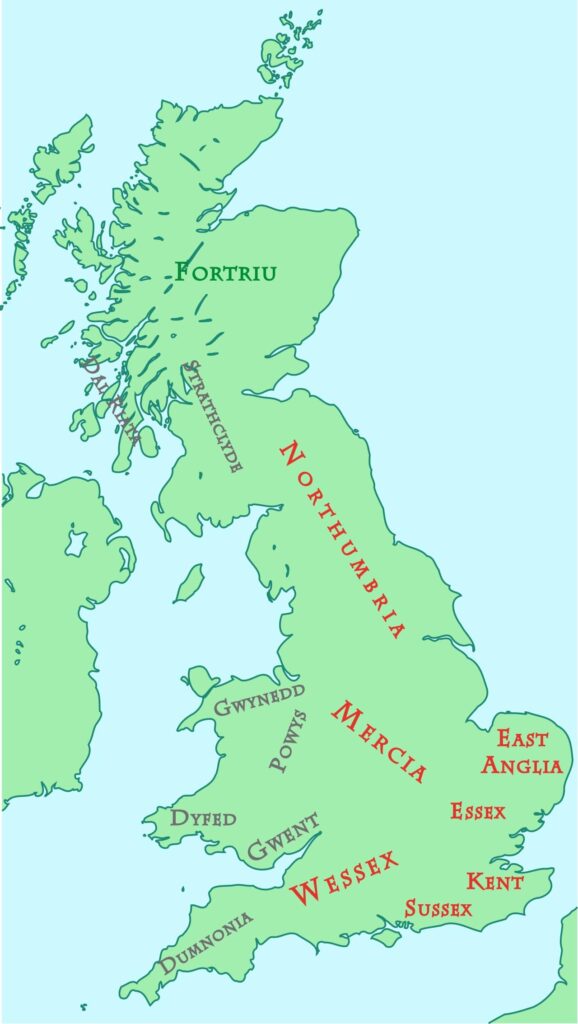The Seven Kingdoms of Old England: Sussex

Sandwiched between Kent and Wessex, with Mercia bearing down from the north, Sussex struggled to survive.
Although included among the Heptarchy, the history of the Kingdom of the South Saxons is obscure and its status more a product of being included in the list of main Anglo-Saxon kingdoms produced by the 12th-century historian, Henry of Huntingdon, than any real claim to eminence among the many kingdoms of the Anglo-Saxons. However, despite its perilous position, sandwiched between the kingdoms of Kent and Wessex, with Mercia bearing down from the north, the kingdom of Sussex retained its independence longer than other, similarly sized kingdoms, such as Lindsey, only finally submitting to the rule of the kings of Wessex in 827.
According to the Anglo-Saxon Chronicle, the kingdom was founded by Ælle in 477 when he landed with his three sons and three boatloads of warriors near Selsey. The kingdom followed the pattern of gradual expansion against Britonnic resistance, although the archaeology of the area suggests that Saxons had settled in Sussex before Ælle’s arrival, possibly originally coming as paid mercenaries in the service of the Roman Empire to man the forts of the Saxon Shore. This was a series of strongholds and ports that the Romans established to guard against barbarian raiders.
The kingdom comes briefly into the light of history in the second half of the seventh century, when the baptism of its king, Æthelwealh, is recorded. Æthelwealh’s sponsor and godfather was Wulfhere, the king of Mercia, and as a baptismal gift Wulfhere gave Æthelwealh the Isle of Wight and the Meon Valley. Standing as godfather to another king was both an act of spiritual brotherhood and political mastery, a mastery emphasised by Wulfhere’s giving of land as gift: Æthelwealh was very much the junior of the two monarchs.
However, although Æthelwealh had become a Christian, his people had not. Their conversion, the last of the major Anglo-Saxon kingdoms, waited upon the rain. Wilfrid, the most tumultuous of Northumbrian bishops, had been deposed from his throne by King Ecgfrith and exiled to Sussex. Arriving in the midst of a severe drought, Wilfrid brought the rain. The South Saxons, abandoned by their gods, accepted Wilfrid’s offer of a new god, an offer Wilfrid sweetened by throwing in lessons on new methods of fishing that helped alleviate the effects of the famine the drought had brought. Sussex became a client kingdom to Mercia in the 8th century when Offa was supreme, but by 825 it had been subsumed into the kingdom of Wessex.
0 Comments